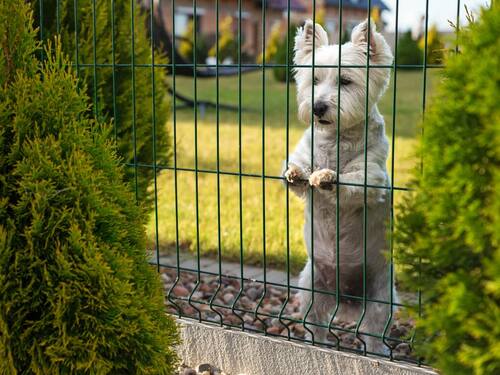Creating a Dog-friendly Landscape: A Comprehensive Guide for Pet Owners
Introduction: Balancing Beauty and Safety in Your Yard
Whether you’re a dog owner or you simply want to deter neighborhood pets from entering your property, creating a dog-friendly landscape is crucial. This guide will help you design a safe, beautiful outdoor space that both you and your furry friends can enjoy.
Safe Plants for a Dog-friendly Landscape
Toxic Plants to Avoid
Many common landscaping plants can be harmful to dogs. Here’s a list of plants to avoid :
- Foxglove
- Aloe vera
- English ivy
- Daffodil
- Azaelea
- Lily of the valley
- Sago palm
- Tulip
- Oleander
- Chrysanthemum
Dog-safe Plants for Your Garden
Fortunately, there are numerous pet-friendly plants to choose from:
- Dill
- Garden marigold
- Magnolia
- African daisy
- Thyme
- Creeping rosemary
- Pineapple sage
- Fennel
- Polka-dot plant
- Snapdragon
Always research any new plants before adding them to your landscape. Consider consulting with a local nursery or veterinarian for region-specific advice on dog-safe plants.
Fencing Options: Keeping Dogs In and Out

A Dog Runs Freely in a Spacious Fenced Backyard
Choosing the right fencing is crucial for maintaining a dog-friendly landscape. Let’s explore two main options:
Underground Fences
Underground fences offer a discreet solution for dog containment:
- An invisible barrier that doesn’t impact landscape aesthetics
- Effective for keeping both pets in and strays out
- Some systems emit sonic and ultrasonic waves to deter dogs
Pros:
- Preserves landscape views
- Customizable boundaries
Cons:
- Requires dog training
- May cause frustration for some dogs
- Dependent on electricity
Above-ground Fences
Traditional fencing provides a physical barrier:
- Visible deterrent for both pets and strangers
- Various materials available (wood, vinyl, metal)
- Can be designed to complement landscape aesthetics
Pros:
- Reliable physical barrier
- No electricity required
- Provides privacy
Cons:
- May obstruct views
- Higher initial cost
- Requires maintenance
When selecting an above-ground fence, ensure it’s:
- Tall enough to prevent jumping (at least six feet for most breeds)
- Sturdy and well constructed
- Free of gaps or weak points
Additional Tips for a Dog-friendly Landscape
- Create designated play areas with durable surfaces
- Provide shaded areas for hot days
- Install a water feature or dog-friendly fountain
- Use nontoxic mulch (avoid cocoa bean mulch)
- Establish a potty area with easy-to-clean materials
Repelling Strange Dogs from Your Landscape

A Small Terrier Stands Behind a Backyard Fence
To deter unfamiliar dogs from entering your yard:
- Use commercial dog repellents (citrus- or ammonia-based)
- Create a DIY repellent spray with vinegar and water
- Install motion-activated sprinklers
- Plant dog-repelling herbs like citronella or lemongrass
Professional Assistance for Your Dog-friendly Landscape
Creating a safe, beautiful landscape that accommodates pets can be challenging. Consider consulting with a professional landscaping company for expert advice and implementation.
For residents in the San Fransisco Bay Area, y our local landscaping expert can offer specialized services in dog-friendly landscape design. Their team can help you:
- Select appropriate, pet-safe plants
- Design and install effective fencing solutions
- Create functional, attractive outdoor spaces for both humans and pets
Contact Arborist Now today to add some trees to your dog-friendly paradise!
Conclusion: Enjoying Your Pet-safe Outdoor Space
By following these guidelines, you can create a landscape that’s both beautiful and safe for dogs. Remember to regularly assess your yard for potential hazards and make adjustments as needed. With careful planning and maintenance, you and your furry friends can enjoy a harmonious outdoor environment for years to come.
Originally posted on February 7, 2020.


